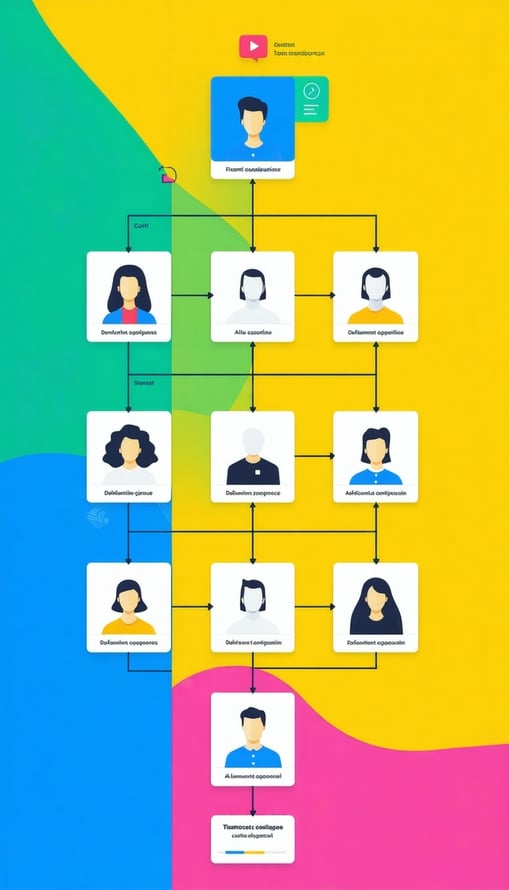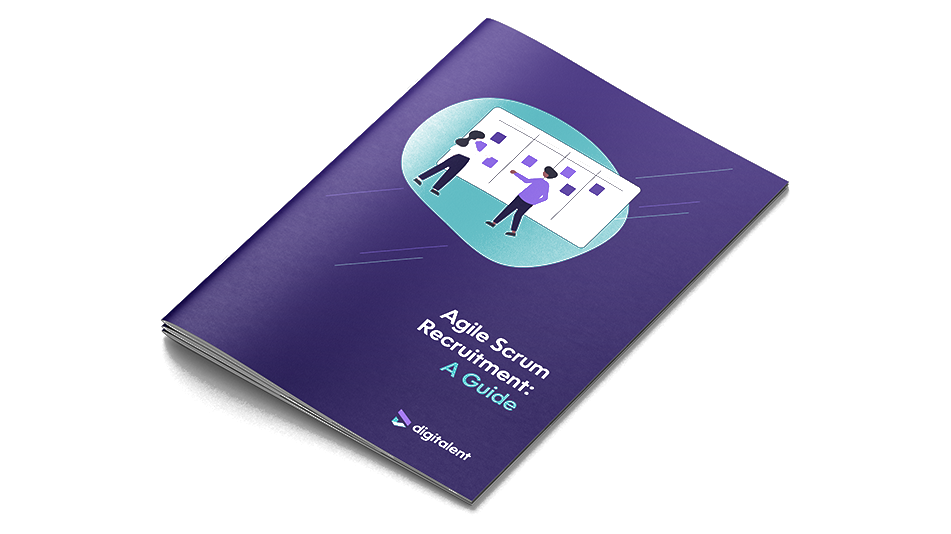Things are moving pretty fast at the moment in tech, aren't they! Startups face the daunting challenge of building AI teams without in-house expertise. Traditional hiring approaches often fall short, leaving companies struggling to keep pace with innovation. The stakes are high, but so are the opportunities. With the right strategies, startups can build scalable, compliant AI teams that drive growth and innovation.
TL;DR:
-
Building an AI team without in-house expertise increases the risk of technical debt and compliance gaps
-
A hybrid team model and governance framework are key to scaling safely
-
Partnering with specialist AI recruiters can cut time-to-hire and improve retention
Understanding the Risks of AI Hiring Without Expertise
Building an AI team without internal expertise presents several risks:
- Knowledge Gaps in Technical Assessment: Without a deep understanding of AI technologies, startups may struggle to assess candidates' technical skills accurately. This can lead to hiring individuals who lack the necessary expertise, resulting in subpar project outcomes.
- Compliance Blind Spots: Navigating the complex landscape of AI regulations is challenging. Startups without compliance expertise risk violating regulations, which can lead to legal issues and damage to their reputation.
- Scalability Challenges: Building a team that can scale with the company's growth is crucial. Without expertise, startups may find it difficult to create a flexible team structure that can adapt to changing needs.
- Cost Implications of Wrong Hires: Hiring the wrong individuals can be costly. It leads to wasted resources, decreased productivity, and the potential need for costly rehiring processes.
Defining "Scalable and Compliant" in AI Teams
To build a successful AI team, startups must understand what it means to be scalable and compliant:
- Technical Scalability Markers: A scalable AI team can handle increasing workloads and adapt to new technologies. This requires a flexible team structure and a focus on continuous learning.
- Compliance Requirements for UK Startups: Startups must adhere to regulations such as GDPR and AI-specific guidelines. This involves implementing robust data protection measures and ensuring transparency in AI processes.
- Team Structure Considerations: A well-structured team includes a mix of permanent and contract roles, allowing for flexibility and access to diverse expertise.
- Growth Pathway Planning: Startups should plan for future growth by identifying potential areas for expansion and ensuring the team is equipped to handle new challenges.

Strategic Solutions for Building Your AI Team
Partnership Approach
- Working with Specialist Recruiters: Partnering with recruiters who specialise in AI and Machine Learning like Digitalent, can help startups find candidates with the right skills and experience.
- Technical Advisory Relationships: Engaging with technical advisors can provide valuable insights into the latest AI trends and technologies, helping startups make informed hiring decisions.
- Compliance Partnerships: Collaborating with compliance experts ensures that startups adhere to regulations and avoid legal pitfalls.
Hybrid Team Structure
- Core Team Composition: A core team of permanent employees provides stability, while contract roles offer flexibility and access to specialised skills.
- Contract vs Permanent Roles: Balancing contract and permanent roles allows startups to scale their team according to project needs and budget constraints.
- Knowledge Transfer Systems: Implementing systems for knowledge transfer ensures that expertise is shared across the team, reducing reliance on individual employees.
- Growth Planning: Startups should develop a clear growth plan that outlines future hiring needs and potential areas for expansion.
Governance Framework
- Essential Compliance Measures: Implementing compliance measures such as data protection policies and regular audits is crucial for maintaining regulatory compliance.
- Documentation Requirements: Startups should maintain thorough documentation of AI processes and decisions to ensure transparency and accountability.
- Risk Management Protocols: Developing risk management protocols helps startups identify and mitigate potential risks associated with AI projects.
- Audit Procedures: Regular audits ensure that compliance measures are effective and identify areas for improvement.
Real-World Implementation Case Study
One of Digitalent's UK clients is a Series B startup that faced challenges in building an AI team. Initially, they struggled with technical assessments and compliance issues. By partnering with Digitalent and compliance experts, they developed a hybrid team structure that balanced permanent and contract roles. This approach allowed them to scale effectively and maintain compliance, resulting in successful project outcomes and significant growth.
Common Pitfalls to Avoid
- Technical Debt Accumulation: Failing to address technical debt can hinder future growth and innovation.
- Compliance Oversights: Ignoring compliance requirements can lead to legal issues and damage to the company's reputation.
- Cultural Misalignment: Building a team with diverse backgrounds and perspectives is crucial for fostering innovation and avoiding cultural clashes.
- Unsustainable Structures: An inflexible team structure can limit a startup's ability to adapt to changing needs and opportunities.
Action Plan for Getting Started
- Initial Assessment Steps: Evaluate current team capabilities and identify gaps in expertise and compliance.
- Partnership Development: Establish relationships with specialised recruiters, technical advisors, and compliance experts.
- Framework Creation: Develop a governance framework that outlines compliance measures, risk management protocols, and audit procedures.
- Timeline Planning: Create a timeline for implementing the new team structure and governance framework, ensuring alignment with business goals.
Conclusion
Building a scalable, compliant AI team without in-house expertise is challenging but achievable. By understanding the risks, defining key requirements, and implementing strategic solutions, startups can create teams that drive innovation and growth. The key is to leverage partnerships, adopt a hybrid team structure, and establish a robust governance framework. With these strategies, startups can navigate the complexities of AI hiring and position themselves for success.
Frequently Asked Questions
1. Can I build an AI team without having in-house AI expertise?
Yes! Many startups begin their AI journey without senior AI talent in place. The key is to combine external technical advisors, specialised recruiters, and a governance-first hiring approach to minimise risk and accelerate impact.
2. What does “compliant” mean when it comes to AI teams?
Compliance means your team follows relevant laws, ethical guidelines, and data protection standards. In the UK, this includes GDPR, AI transparency requirements, and emerging regulatory frameworks across the EU and beyond.
3. What is a hybrid AI team structure?
A hybrid team blends permanent employees with contract or freelance AI specialists. It allows startups to access niche expertise quickly, while maintaining core capabilities in-house which makes it both scalable and cost-effective.
4. How can I assess AI candidates if I don’t understand the tech?
Use a structured technical assessment framework co-designed by AI practitioners, like our own AWS-certified specialist, Chris Morrow. These frameworks evaluate real-world problem-solving, code quality, and model understanding — and can be used effectively by non-technical hiring teams with the right support.
Need help building your AI team?
At Digitalent, we help UK startups build scalable, compliant AI teams...fast! From technical assessments to hybrid team structures, we’ve helped lots of Series A–C companies hire smarter and avoid costly mistakes.
📞 Book a free 30-minute strategy consultation and get a tailored roadmap for your next AI hire.

